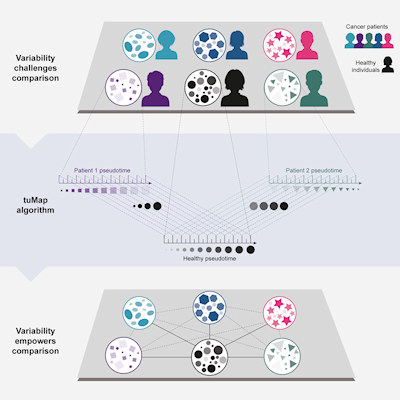November 15, 2021 -- WASHINGTON, DC - While great progress has made in the immuno-oncology field, medicine is scratching the surface in terms of a complete understanding of anti-tumor immune responses. In an effort to improve our knowledge in this field, Dr. Miriam Merad, PhD, director of the Precision Immunology Institute at the Icahn School of Medicine at Mount Sinai is working on characterizing myeloid cells in cancer patients. Merad spoke with ScienceBoard at the Society for Immunotherapy of Cancer's (SITC) 2021 annual meeting.
Dr. Merad led two sessions during the SITC 2021 meeting. She is also one of the organization’s program committee members. Merad delivered a presentation titled “Mapping Immunosuppressive Cells in the Tumor Microenvironment” in which she discussed the role of myeloid cells in shaping immune responses to tumor cells.
Merad and her team at Mount Sinai are using advanced single-cell mapping techniques to define the specific myeloid cell subsets encompassing both tissue-resident macrophages and monocyte-derived macrophages. By better characterizing the features of these cells, Merad hopes to gain a deeper understanding of how they impact tumor growth and the recruitment/expansion of NK cells and CD8+ T cells.
On Friday, the first day of the SITC 2021 annual meeting, Merad co-chaired a panel discussion on myeloid cells. There is data that suggests that myeloid cells are significant contributors to the dampening and regulation of the body's anti-tumor immune response.
“Most immunotherapy strategy is focused on activating T cells … so that they kill tumors better,” Merad said. “My research is focused on myeloid cells. And the reason we are interested in them is because they are the instructors of T-cell function.”
The next step for Merad and her team is using advanced technologies to conduct experiments in patients to start building clinical knowledge on the tumor microenvironment and the immune response to immunotherapy.
“It’s the platform that we’ve built in recent years, which is technology-driven and immunotherapy-focused, that we are really excited about,” Merad remarked.
Copyright © 2021 scienceboard.net
Last Updated 7/21/2022 9:02:00 AM



